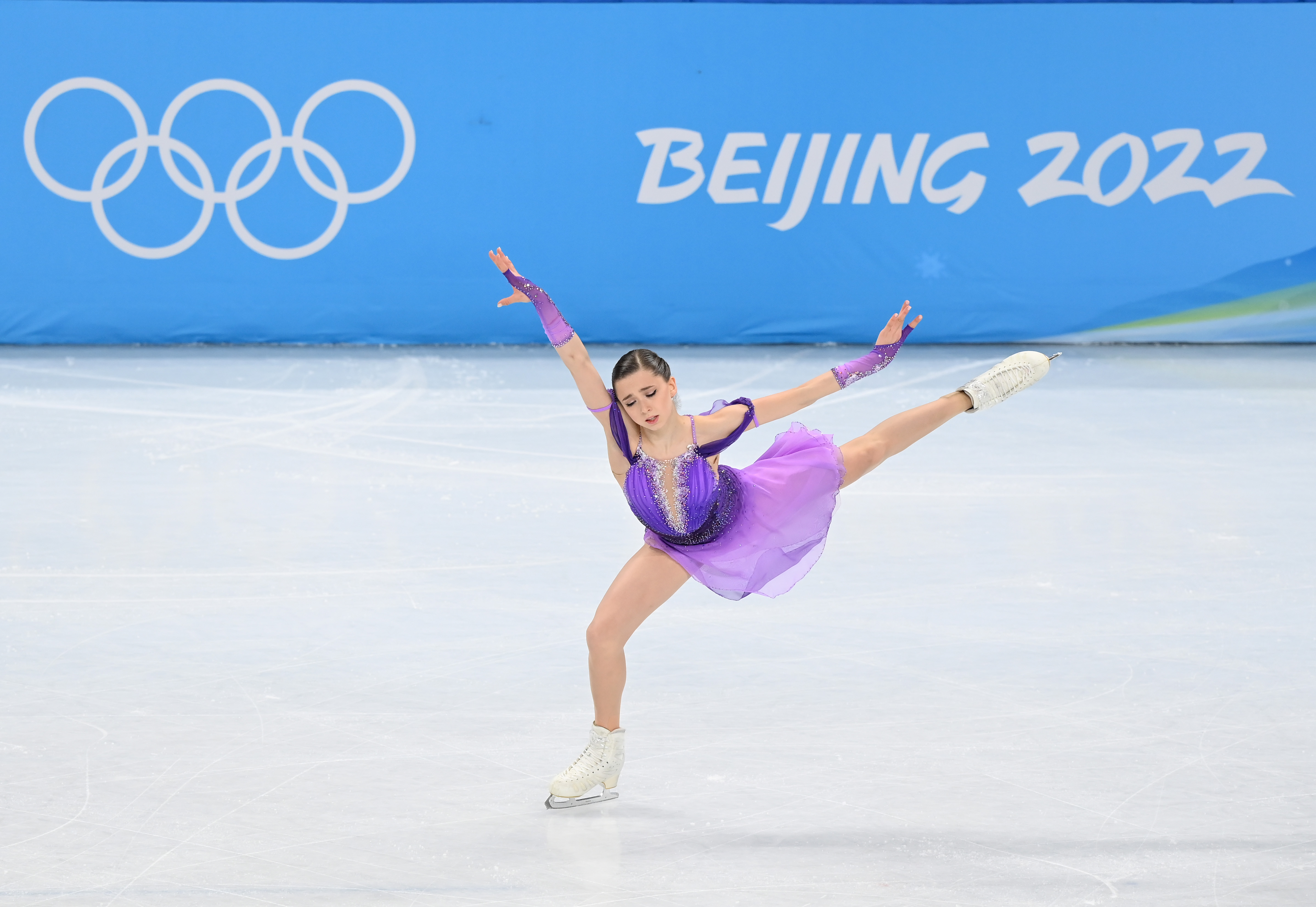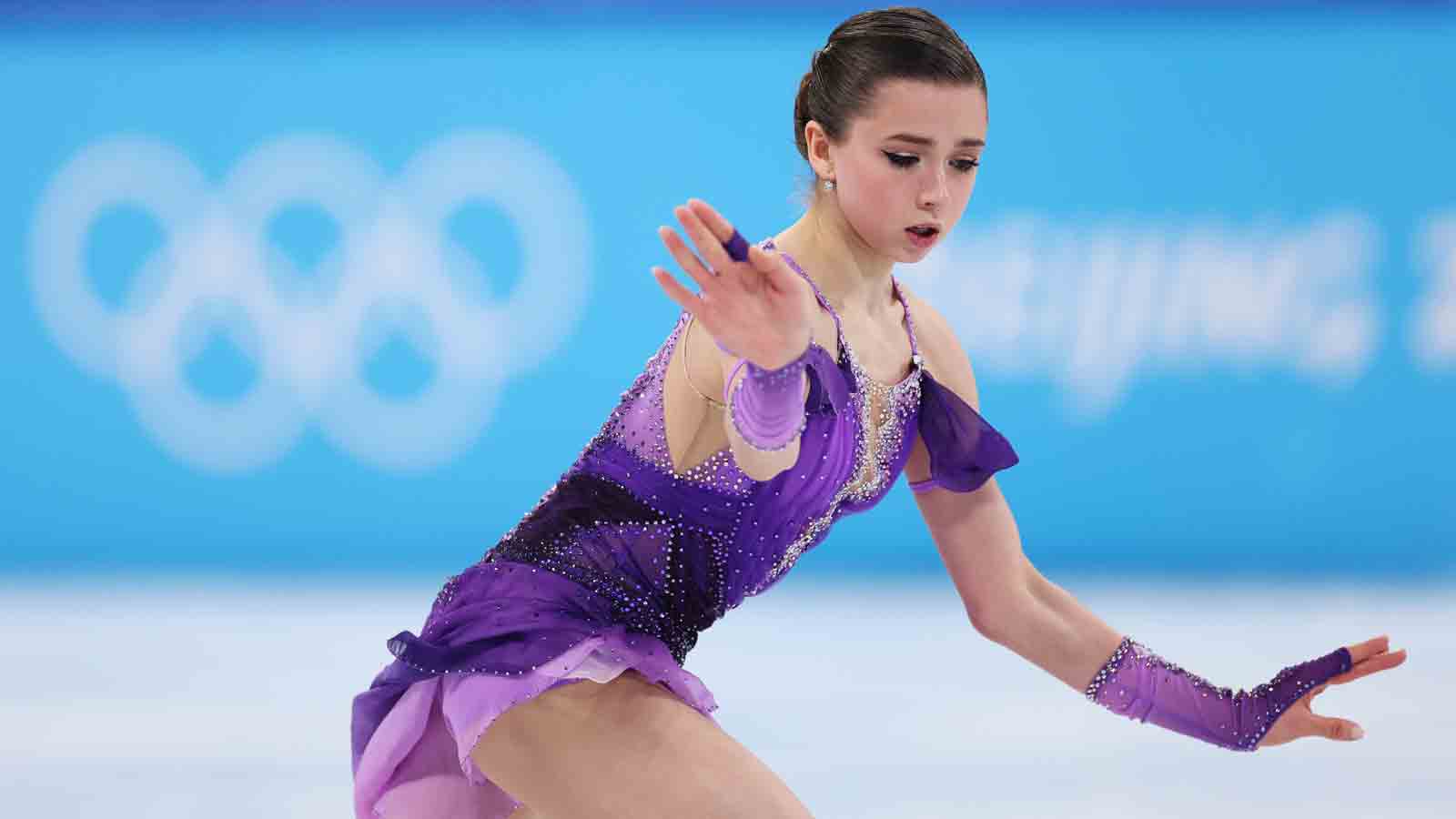Three Team USA skaters advanced to the women's free skate final in the 2022 Winter Olympics, but the controversy surrounding their biggest competitor could keep them off the podium, even if they medal.
"That does suck, not having a medal ceremony," Alysa Liu, the top-ranked American heading into the final event, said after her short program performance. "And for the skaters, if they also happen to medal, that does suck."
She added that she understands why the medal ceremony will be on hold, but noted it does, in some way, feel as though the rest of the skaters are paying a price for something they didn't do.
The women's figure skating event has been overshadowed by the latest Russian doping scandal involving gold-medal favorite Kamila Valieva.
But whether that controversy is distracting from their focus in these Games, the U.S. athletes say they're focused on their individual performances.
"It's not my business, it's not something I'm thinking about," said 25-year-old Mariah Bell, who came in 11th and is the oldest U.S. women’s singles skater at the competition since 1928. "I'm just here, excited to skate and I don't have control over what anybody else does."
Bell, Liu and Karen Chen, who came in 13th, will compete in the free skate event on Thursday at 4 a.m. CST, when the medals will be decided.
Valieva was back on the Olympic stage a day after she was cleared to compete in the individual event, despite testing positive for a banned drug at a pre-Games event. The 15-year-old walked away with the top performance at Capital Indoor Stadium. Russian teammates Anna Shcherbakova and Alexandra Trusova came in second and fourth, respectively. Japan’s Kaori Sakamoto was in third.
Regardless of what happens at Thursday's free skate finals, there won't be a podium presentation or medal ceremony if Valieva finishes in the top three. That's because the International Olympic Committee, concerned that she could still be banned after a full doping case investigation, said it would instead “organize dignified medal ceremonies” at some future point. The organizing committee also did not explain where or how it might be held.
Her doping controversy has reshaped the women's competition. Traditionally, only the best 24 skaters advance to the free skate, according to the short program qualification rule. But 25 skaters are moving on to Thursday's final round, with an extra skater added to the roster so that if Valieva is later disqualified, enough athletes were able to have competed and gotten a fair shot at gold.
Valieva tested positive for the heart drug trimetazidine on Dec. 25 at the Russian nationals. It wasn't until after Valieva's dominant performance in the team event that helped the Russian Olympic Committee win gold, that the drug test results from a Swedish lab came to light.
That medal ceremony, in which the U.S. was expected to take silver, was initially delayed before the International Olympic Committee said it won't be held in Beijing since a decision on Valieva's case could take months play out.
Chen said she's disappointed to have to leave Beijing without her hardware from the team competition, and heartbroken to not get the Olympic celebration she always imagined.
“I really was looking forward to be on the podium with my teammates and just sharing that moment, and I’m sure I’m not the only one that felt that way,” Chen said. “But what can we do? It’s out of our control and, whatever it is, we just got to go with it and go with the flow. … I think once that everything is over, we’ll definitely try to find a way to celebrate.”
Valieva was initially suspended by the Russian anti-doping agency (RUSADA) before it lifted the ban a day later. The IOC and others appealed, and an expedited hearing was held Sunday night.
Valieva's lawyer Denis Oswald said during the hearing that Valieva failed a doping test because of contamination from medication her grandfather was taking.
The Court of Arbitration for Sport ruled Monday that Valieva did not need to be provisionally suspended ahead of a full investigation by the Russian Anti-Doping Agency that could take months to resolve. The court cited Valieva's status as a minor, or "protected person," and the "serious issues of untimely notification" of her positive test as factors in the favorable ruling.
“The panel considered that preventing the athlete to compete at the Olympic Games would cause her irreparable harm in the circumstances,” CAS Director General Matthieu Reeb said.
Valieva landed the first quadruple jump by a woman at the Olympics, a feat that helped catapult the ROC's score to win gold in the teams event. If Valieva and Russia end up getting disqualified after the doping probe, Team USA would be bumped up to gold, Japan would get silver and fourth-place finisher Canada could move up to bronze.
“We are devastated that they will leave Beijing without their medals in hand, but we appreciate the intention of the IOC to ensure the right medals are awarded to the right individuals,” the U.S. Olympic and Paralympic Committee said in a statement.
Still, Valieva and her teammates are trying to extend an era of Russian dominance in women's figure skating at the Olympics. All three ROC skaters finished in the top four.
The Russian women are all coached by Eteri Tutberidze, the former ice dancer-turned-kingmaker who has been criticized for pushing young skaters to extreme limits in the pursuit of Olympic medals. The investigation into Valieva's doping scandal will focus on Tutberidze and the rest of the entourage that has surrounded the young skater in the lead-up to the Olympics.




